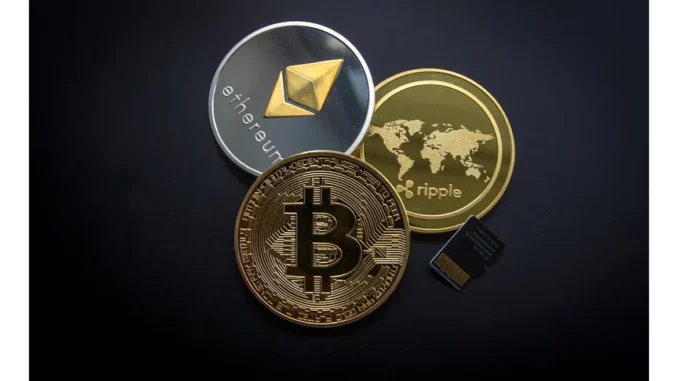
In an era marked by technological innovation, the CEO of Circle has articulated a bold vision for the future of cryptocurrency, envisioning a world where digital assets redefine societal and economic norms. This optimistic outlook marks the end of skepticism and heralds a new era of trust and innovation, driven by the rapid evolution of blockchain technology. The CEO’s remarks underscore a growing consensus: blockchain is not merely a fleeting trend but a foundational element of modern internet infrastructure.
“The potential of blockchain technology is limitless,” stated the CEO during a recent industry conference. “We are on the cusp of a digital renaissance that will transform how we interact with the financial world.”
Blockchain technology, with its promise of unparalleled security and scalability, is poised to revolutionize traditional financial frameworks. Innovations such as Zero-Knowledge proofs and Fully Homomorphic Encryption are moving from theoretical concepts to active development and implementation across various sectors. These technologies offer robust security and privacy, enhancing the trustworthiness and resilience of blockchain applications. A leading blockchain developer noted, “Zero-Knowledge proofs and Fully Homomorphic Encryption are game-changers. They offer unparalleled security and privacy, making blockchain applications more robust and trustworthy.”
Cryptocurrencies are increasingly adopted for cross-border payments due to their speed and lower fees compared to traditional banking systems. This trend has significant implications for global commerce, potentially lowering the cost of international transactions and making them more accessible. The landscape of digital assets is rapidly evolving, with major financial institutions recognizing the significance of cryptocurrencies. Bitcoin, for instance, has solidified its position as a key alternative investment asset, paving the way for regulated exposure worldwide. The adoption of Bitcoin by major corporations and its acceptance as a legitimate investment vehicle marks a significant shift in the financial landscape.
Moreover, stablecoins are set to revolutionize the electronic money market, setting the stage for global acceptance and recognition. These digital assets, pegged to traditional currencies, offer the stability of fiat money with the added benefits of blockchain technology. The concept of decentralized finance (DeFi) is also gaining traction, offering financial services without the need for intermediaries like banks. DeFi platforms are democratizing access to financial services, enabling users to lend, borrow, and trade assets in a decentralized manner.
Looking ahead, the CEO’s forward-thinking perspective paints a picture of a world where digital assets and smart contracts shape the future of finance, commerce, and governance. He maintains an unwavering belief that these innovations will catalyze societal transformations, setting the stage for a crypto-centric decade of unparalleled growth and progression. NFTs (Non-Fungible Tokens) are revolutionizing the art and entertainment industries by providing unique digital assets that can be bought, sold, and traded securely on blockchain platforms. This new form of digital ownership is creating novel opportunities for artists and creators, allowing them to monetize their work in innovative ways. An art market analyst observed, “The rise of NFTs is just the beginning. We are witnessing a fundamental shift in how art and entertainment are consumed and valued.”
The optimistic outlook presented by Circle’s CEO is not without merit. The rapid advancements in blockchain technology and the increasing adoption of cryptocurrencies by major financial institutions signal a significant shift in the financial landscape. However, several key questions and challenges need to be addressed. Regulatory bodies must adapt to the rapid expansion of cryptocurrencies and their impact on the traditional financial system. The lack of regulation in the crypto space has been a double-edged sword, offering both opportunities and risks. Effective regulation will be crucial in ensuring the stability and security of the digital asset market.
Environmental concerns over cryptocurrency mining and energy consumption are significant. The energy-intensive nature of some blockchain networks, particularly Bitcoin, has raised questions about their sustainability. Efforts to develop more energy-efficient consensus mechanisms, such as Proof of Stake (PoS), will be vital in addressing these concerns. Security remains a paramount concern as digital assets become more mainstream. The industry must continually innovate to protect against cyber threats and ensure the security of blockchain transactions. The implementation of advanced cryptographic techniques like Zero-Knowledge proofs and Fully Homomorphic Encryption is a step in the right direction.
Looking to the future, the integration of digital assets into mainstream finance seems inevitable. As regulatory frameworks evolve, we can expect greater institutional adoption and the development of more sophisticated financial products based on blockchain technology. This will likely lead to increased financial inclusivity, providing access to banking services for the unbanked population and enhancing transparency and trust in financial transactions. The rise of DeFi platforms and NFTs suggests that we are only scratching the surface of what blockchain technology can achieve. As these platforms mature, they could fundamentally alter the way we interact with financial services and digital assets. The potential for high returns on investments, coupled with the inherent transparency and immutability of blockchain, make it an attractive proposition for both individual investors and institutions.
As we stand on the brink of this digital renaissance, the transformative power of cryptocurrency and blockchain technology cannot be overstated. The vision articulated by Circle’s CEO is not just a hopeful projection; it is a call to action for innovators, regulators, and institutions to embrace the boundless possibilities of a blockchain-driven world. The future of finance is digital, and the revolution is already underway.

Be the first to comment